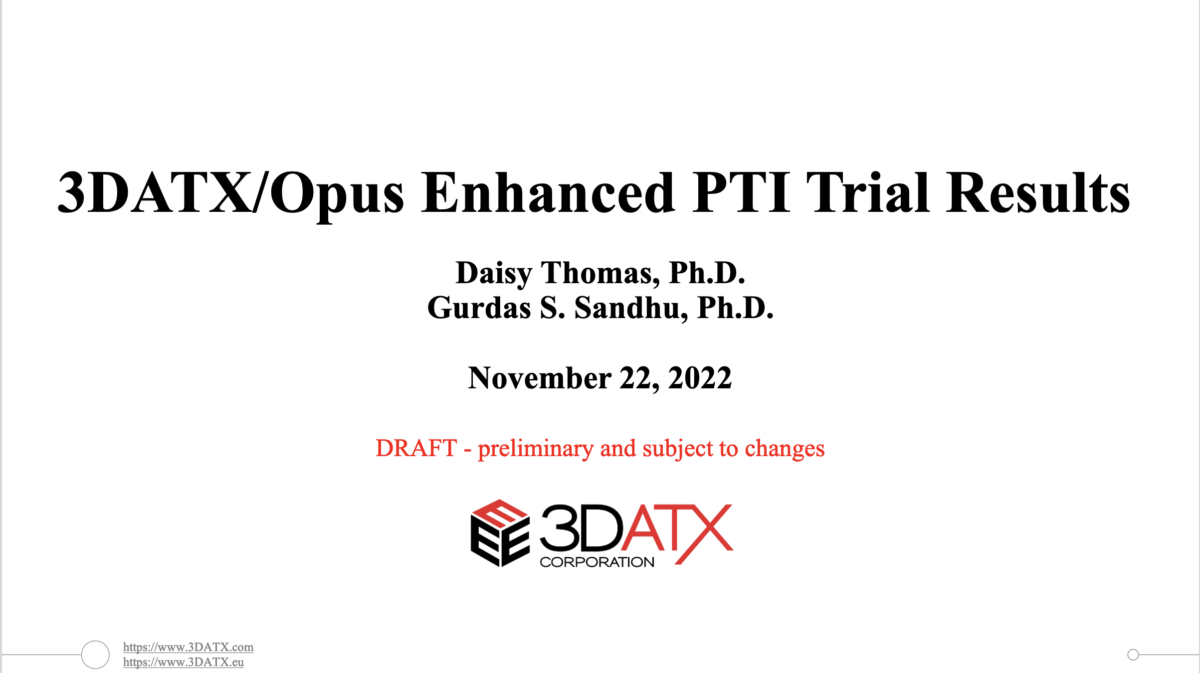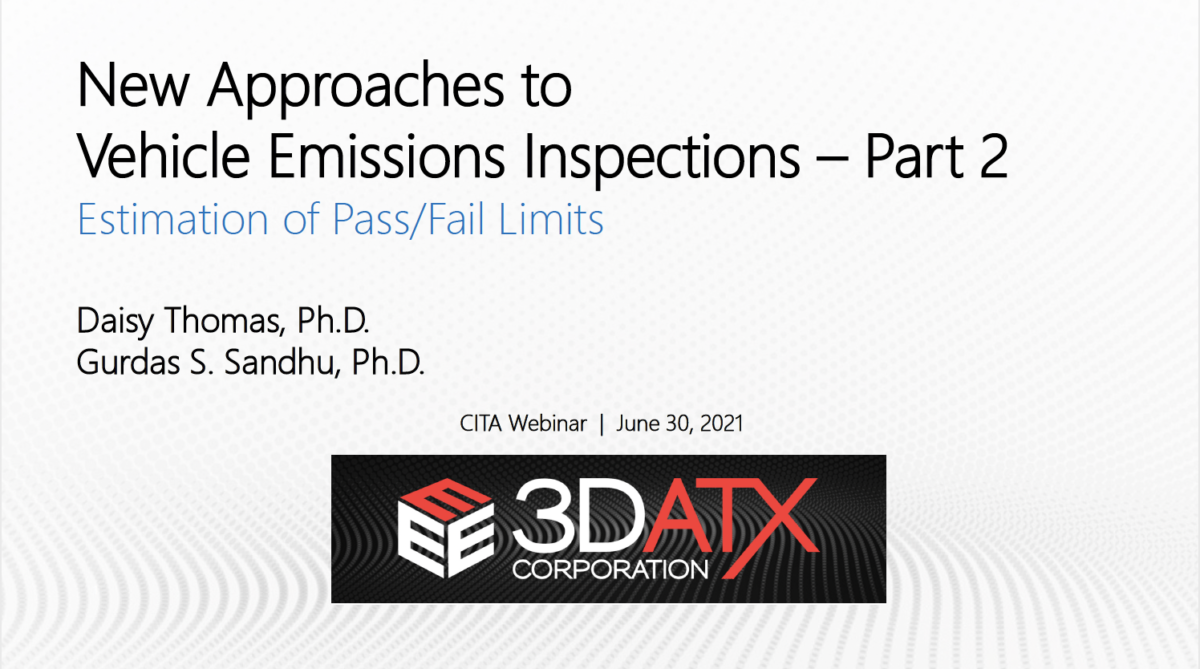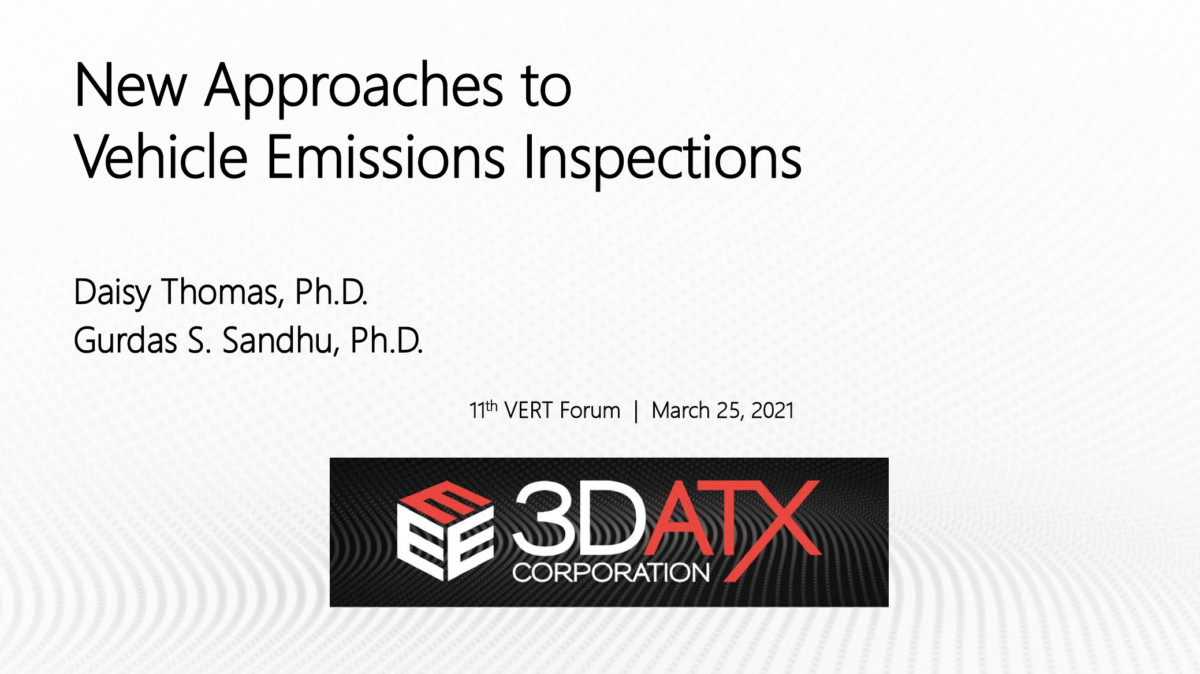3DATX/Opus Enhanced PTI Trial Results
Date: November 11, 2022
This presentation discusses the development of and results from an enhanced PTI pilot program using the 3DATX parSYNC® iPEMS on 607 vehicles using a protocol involving low idle, high idle/free acceleration and dynamic acceleration test types. An investigation into which test types from the enhanced PTI protocol are best able to characterise the emissions of various pollutants from these vehicles is performed. The results of the enhanced PTI test are compared to those of the current regulatory PTI test for the vehicles tested, the fleet-average emissions are summarized, and a suggested methodology for definition of pass/fail thresholds is presented.
Supporting Information: Time-Series Graphs (607 vehicles, Oct 2022 update)
Learn more on our Conference Presentation and Documents pages.
New Approaches to Vehicle Emissions Inspections – Part 2
Date: June 30, 2021
In this second webinar the vehicle emissions database is expanded to over 160 vehicles. This update includes:
Proposed enhanced PTI test protocol for gaseous and particulate emissions from gasoline and diesel fuelled vehicles.
Preliminary thresholds for nitrogen oxides (NOx as NO + NO2) emissions to identify malfunctioning or tampered emissions aftertreatment devices. Three types of emissions thresholds are discussed – normal idle, stationary high RPM, and short driving acceleration – and based on which tests are permitted in a country, one or more metric could be used.
Comparison of carbon monoxide (CO) and particle number (PN) results from the enhanced PTI protocol to the current PTI based CO and smoke opacity data, respectively.
Supporting Information: Time-Series Data of Individual Vehicles
New Approaches to Vehicle Emissions Inspections – Part 1
Date: February 23, 2021
This webinar covers the findings from the first month of vehicle emissions data collected using the parSYNC® iPEMS under the 3DATX sponsored PTI Trial supported by CITA. The data were collected by OPUS at their Borås, Sweden site.
The current PTI test protocols and emissions checks, CO for petrol and smoke opacity for diesel, do not have the capability to measure particle number (PN) and oxides of nitrogen (NOx) emissions from current technology vehicles. Consequently, the current PTI program is unable to identify PN and NOx high-emitters. It is therefore important to update the PTI test, and the use of integrated PEMS (iPEMS) solutions in a new PTI procedure (NPTI) to achieve this is an appealing solution. At the Borås site, an engine idle PN test and two different NOx tests (one dynamic acceleration test and one stationary high idle test) are being performed on a growing number of vehicles. Initial findings are promising, with high repeatability for individual vehicles and good sensitivity of the equipment and protocol to vehicle emission levels.



